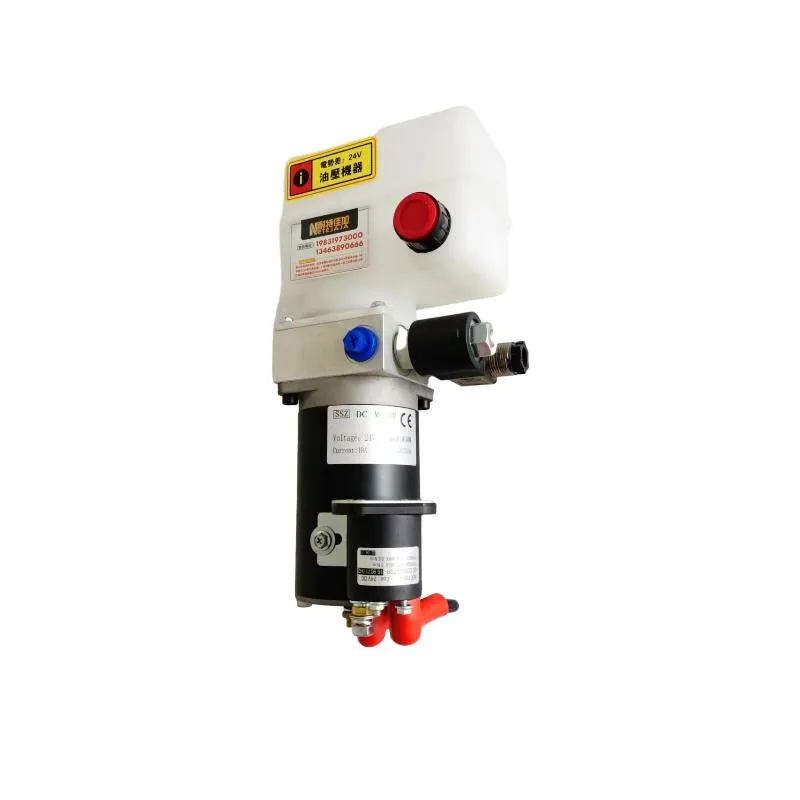Nov . 25, 2024 02:05 Back to list
Custom Designed Hydraulic Valve Cylinders for Enhanced Performance and Efficiency
Understanding Custom Hydraulic Valve Cylinders
Hydraulic systems are integral to many industrial applications, from construction machinery to manufacturing equipment. At the heart of these systems are hydraulic valves and cylinders, which play a critical role in controlling fluid flow and converting hydraulic energy into mechanical energy. While standard hydraulic components are widely available, the growing demand for efficiency and specificity has led to an increase in custom hydraulic valve cylinders. This article will explore the importance of custom solutions, their applications, and the factors to consider when designing these components.
The Importance of Customization
In many cases, off-the-shelf hydraulic valves and cylinders may not meet the specific requirements of a particular application. Each industry has unique demands related to pressure, flow rates, size constraints, and operating environments. For instance, a hydraulic system used in an offshore oil rig needs components that can withstand corrosive marine conditions and extreme pressure fluctuations, while a manufacturing assembly line may require rapid actuation and high precision.
Custom hydraulic valve cylinders can be designed to meet these specific needs. They allow engineers to optimize the performance of hydraulic systems, enhancing efficiency, safety, and productivity. By tailoring the design and materials used in the construction of hydraulic cylinders and valves, manufacturers can create solutions that offer better performance and longer life spans.
Applications of Custom Hydraulic Valve Cylinders
Custom hydraulic valve cylinders are utilized across a wide array of industries. In construction, they are essential for operating heavy machinery like excavators, bulldozers, and cranes. These machines rely on hydraulic systems to lift, dig, and move materials efficiently. Custom solutions can improve the responsiveness and reliability of these machines, making them safer and more effective.
In the aerospace sector, custom hydraulics play a crucial role in controlling various systems aboard aircraft. Hydraulic systems are used for landing gear operation, flight control surfaces, and cargo doors. The precise engineering of these components is vital for ensuring safety and performance at high altitudes and under varying pressure conditions.
The manufacturing industry also benefits from custom hydraulic solutions. In automated assembly lines, hydraulic cylinders are used for presses, clamping devices, and material handling systems. Customizing these components can increase cycle times, enhance precision, and reduce energy consumption, all of which contribute to a more efficient production process.
custom hydraulic valve cylinder

Designing Custom Hydraulic Valve Cylinders
When embarking on the design of custom hydraulic valve cylinders, several factors need to be considered
1. Performance Requirements Define the specific pressure, flow rate, and responsiveness required for the application. Understanding these parameters will guide the design process. 2. Material Selection Depending on the operating environment, choosing materials that can withstand wear, corrosion, and extreme temperatures is crucial. For example, stainless steel may be suitable for marine applications, while aluminum might be used in lighter systems.
3. Size and Space Constraints Custom solutions often arise from the need to fit within limited spaces. Engineers must ensure that the dimensions of the hydraulic valves and cylinders are compatible with the existing system while still delivering required performance.
4. Ease of Maintenance Designing for maintenance is critical in extending the lifespan of hydraulic components. Custom valves and cylinders should allow for easy access to parts that may require regular inspection and service.
5. Compatibility Ensure that custom hydraulic components are compatible with existing systems, including fittings, hoses, and control mechanisms.
6. Testing and Validation Once designed, the hydraulic valves and cylinders must undergo rigorous testing to validate their performance under expected conditions. This phase may include pressure testing, durability assessments, and performance evaluations.
Conclusion
Custom hydraulic valve cylinders represent an essential part of modern industrial machinery and systems. By providing tailored solutions that meet specific operational needs, they enhance efficiency, productivity, and safety across various applications. As industries continue to evolve, the demand for customized hydraulic components will only increase, underscoring the importance of innovation and engineering excellence in this field. Whether in construction, aerospace, or manufacturing, custom hydraulic solutions have the potential to redefine operational capabilities and performance benchmarks.
-
Fork Lift Power Units - Hebei Shenghan | Efficiency, Reliability
NewsJul.13,2025
-
1.5-Ton Turbocharged Cylinder-Hebei Shenghan|Hydraulic Solution,Energy Efficiency
NewsJul.13,2025
-
Auto Hoist Power Units-Hebei Shenghan|Efficiency&Industrial Lifting
NewsJul.13,2025
-
Double Acting Power Units-Hebei Shenghan|Hydraulic Solutions,Industrial Efficiency
NewsJul.13,2025
-
1.5 Ton Lifting Cylinder 70/82-40-290-535 - High-Performance Hydraulic Solution | Hebei Shenghan
NewsJul.13,2025
-
Fork Lift Power Units - Hebei Shenghan | Efficiency&Reliability
NewsJul.13,2025
